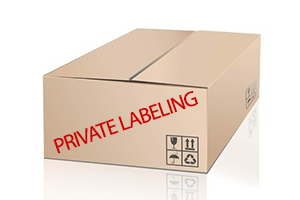 After acquiring the online shoes and clothing retailer Zappos a few years ago, it should come as no surprise that Jeff Bezos’ Amazon is now expanding by private labeling of clothing.
After acquiring the online shoes and clothing retailer Zappos a few years ago, it should come as no surprise that Jeff Bezos’ Amazon is now expanding by private labeling of clothing.
According to KeyBanc Capital analyst Ed Yruma, there are at least seven private label Amazon brands for over 1,800 items.
Many people do not understand how far Amazon has expanded beyond being a mere online bookstore and retailer of miscellaneous goods.
In fact, Amazon is a logistics and distribution powerhouse backed by cutting edge software and commercial warehouse facilities that include robots.
Related Article: Licensing Agreements For Your Products And Business Systems
3 Important Private Labeling Lessons
Texas Internet Lawyer Mike Young says that small business owners can learn three important lessons from Amazon’s new private labeling venture.
1. If there is profit to be made in the distribution of products on a national or international scale, Amazon may become your private label competitor in addition to being a means to sell through the company’s online marketplace. This may adversely affect profit margins because Amazon can afford to run a new venture at a loss while driving the competition out of business.
2. Small business owners can profit by private labeling too. According to Attorney Young, entrepreneurs should find products and services to private label and sell in addition to their existing lines. “There are always opportunities to upsell and cross-sell products and services that complement what you’re already selling,” he said.
Related Article: Business Alliance With Your Competitor – When Does It Make Sense?
3. Private labeling should expand upon your existing business model rather than going off into unrelated areas, both as to what is being sold and the price points. If you sell electronics, private label power cords, batteries, chargers, and even extended warranties may be a natural fit because they logically flow from the original reason customers are buying from you in the first place. However, trying to sell a private label suit to a customer who came to your pet store to buy a dog collar makes no sense because there is no logical connection between the two items and the suit is at a significantly higher price point than basic pet accessories.
Related Article: Licensing Agreements – How To License Products In 3 Easy Steps
Naturally, if you expand your venture through private labeling you’ll want to protect yourself with written contracts with your private-label manufacturers and suppliers. According to Attorney Mike Young, an experienced business lawyer can prepare or review private label agreements to ensure you’re minimizing your legal risks as you create and grow your own brands.

